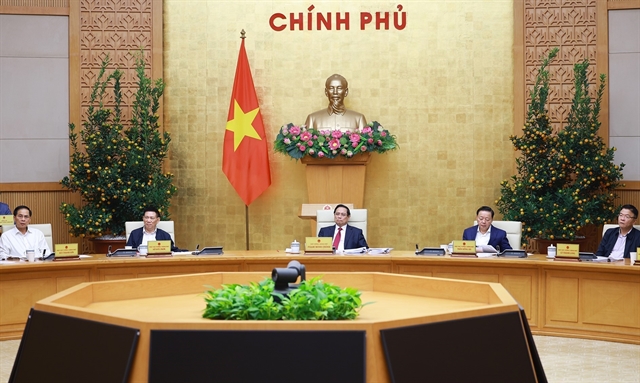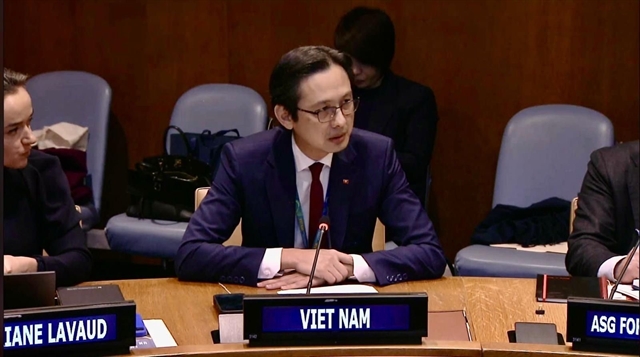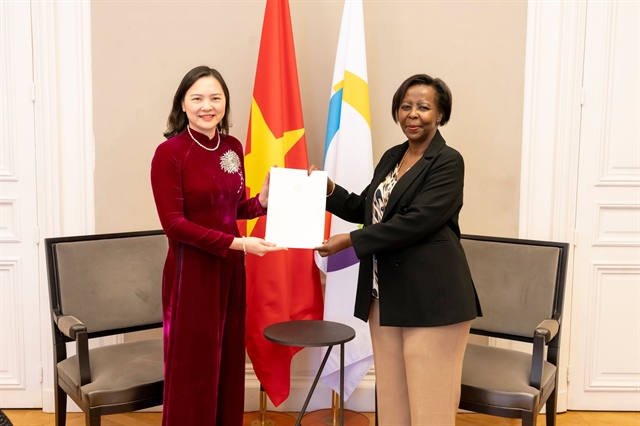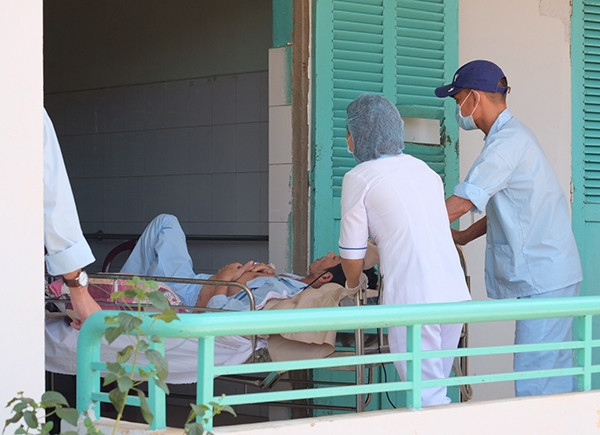 Society
Society
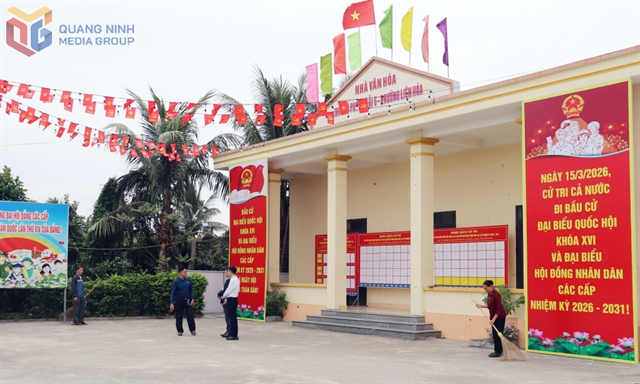
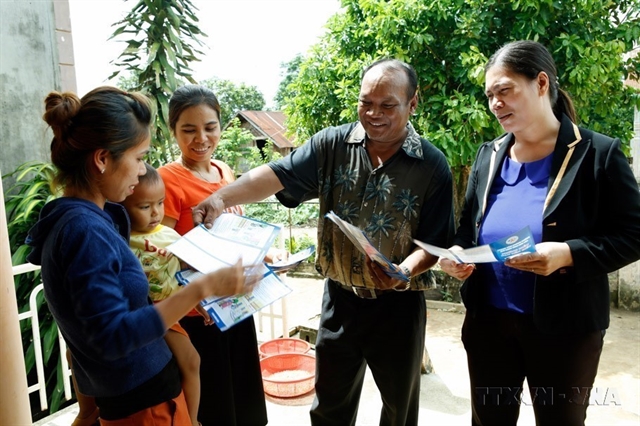 |
| Community leaders advocate for prevention and control measures against HIV in Đắk Lắk Province. — VNA/VNS Photo Dương Ngọc |
BANGKOK — Stigma and discrimination often drive people living with HIV/AIDS away from the health services and support that they need and further increase the epidemic, according to regional director of UNAIDS Asia-Pacific, Eamonn Murphy.
Speaking at a Southeast Asian regional workshop on HIV-related stigma and discrimination, held jointly by UNAIDS and UNDP in Bangkok on Wednesday, Murphy emphasised how healthcare is interwoven with human rights and social inclusion.
This is the second time the event has been held, aimed at countering the prejudices that people living with HIV (PLHIV) are facing.
“Testing, prevention and treatment on their own are not enough to reach the goal of ending AIDS (the late stage of HIV infection).
“The community’s involvement and investment are key to building trust and getting the results that the people in our countries deserve and expect, and the governments of our countries have committed to through the political declaration, and other commitments internationally and nationally,” said the UNAIDS Asia-Pacific regional director.
UNAIDS statistics show that across countries in the Asia Pacific, 22 per cent of PLHIV are not aware of their status.
Meanwhile, 16 per cent of PLHIV across the region have already been diagnosed but are not accessing treatment.
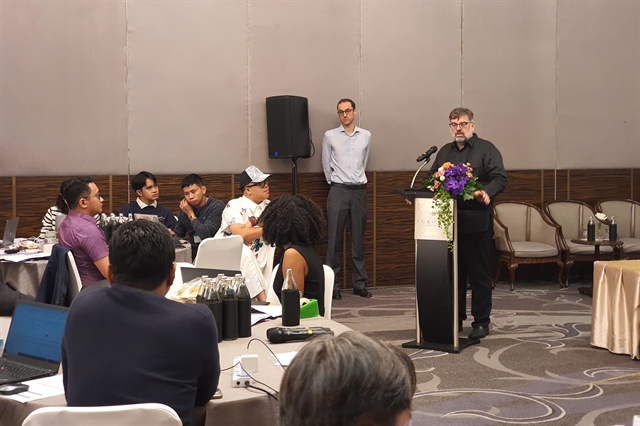 |
| Regional Director of UNAIDS Asia-Pacific Eamonn Murphy addresses the meeting on Wednesday. — VNS Photo Nhật Hồng |
“We have a massive population so even percentages don't sound big, but when you translate them into population size, it is significant,” Murphy added.
As of 2022, Asia Pacific counted for about 6.5 million PLHIV, equivalent to about 16 per cent of the global HIV numbers of around 39 million people.
The region also made up approximately 24 per cent of the total new HIV infections globally, and accounted for around 150,000 AIDS-related deaths in the same year.
According to Dr Ye Yu Shwe, strategic information officer at UNAIDS Asia-Pacific, the region has made good progress in countering the HIV epidemic since its peak in the mid-1990s, but the decline has slowed down in the past decade.
“The region is basically lagging behind in reaching the target,” he said, explaining that with a 14 per cent decline between 2010 and 2022, there still needs to be a reduction of 76 per cent to meet the goal of 90 per cent HIV reduction by 2030.
“Some countries are doing well in terms of reducing new HIV infections, for example, New Zealand or Việt Nam, but inequalities between and within the countries slow down the progress of the HIV response in the region,” Shwe added.
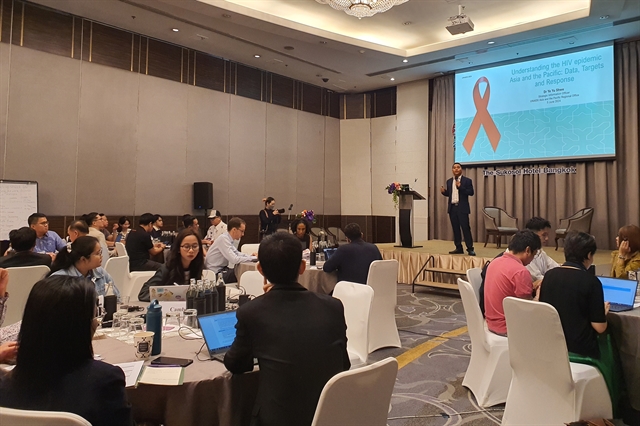 |
| Dr Ye Yu Shwe, strategic information officer at UNAIDS Asia-Pacific presents the region's HIV/AIDS data at the meeting. — VNS Photo Nhật Hồng |
Kathryn Johnson, a policy specialist in HIV and health from the UNDP regional office for Asia-Pacific, said: “Frameworks and justice mechanisms are powerful tools that can either perpetuate or dismantle prejudice and inequality. Unfortunately, too often they become arenas for individuals living with HIV to encounter additional layers of stigma and discrimination.
“For key populations within LGBTI communities, these challenges are often compounded by certain societal prejudices and systematic barriers that are either marginalised or isolated.”
Stigma and discrimination are considered critical barriers to HIV service delivery - including testing, prevention, treatment and care services for people at risk of acquiring the virus.
This issue has been reflected in the Global 10-10-10 HIV Targets, which seeks to see fewer than 10 per cent of people living with HIV and key affected populations, experiencing stigma and discrimination, in addition to removing legal and policy barriers that deny or limit access to services, as well as gender inequality and violence.
Multi stakeholder engagement is a way to ensure that the conversations around HIV are rooted in truth, empathy and understanding, according to programme manager at the Asia Pacific Network of People Living with HIV (APN+), Harry Prabowo.
“This collaboration is vital in dispelling myths, breaking down prejudices and fostering a supportive environment where discrimination has no foothold.”
UNAIDS regional director for Asia-Pacific Eamonn Murphy added: “It's critical that we look at what's happening in other places, how we can learn from that, how we support each other, and see that there are common agendas of issues around social inclusion and around rights - not just people at risk or living with HIV but gender and even climate - there are common issues around these, about who is left behind in our society.” — VNS


